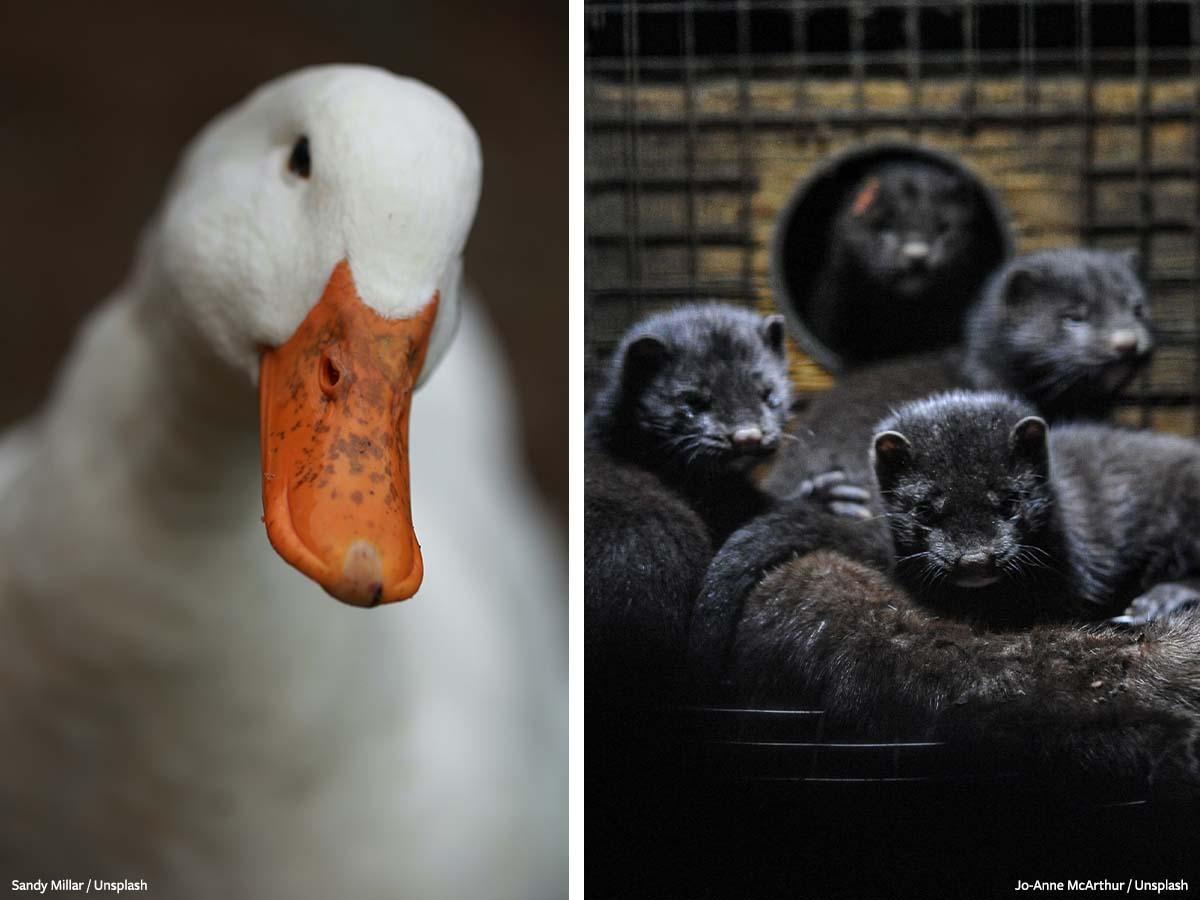Rhode Island Residents: Ban Fur and Foie Gras!
This alert is no longer active, but here for reference. Animals still need your help.
Rhode Island's House of Representatives just took a huge step toward protecting animals raised and killed for fur and foie gras by passing two separate bills that would ban these products of cruelty in the state.
Both of these industries are inherently inhumane and have no place in modern society, and have been banned in many jurisdictions around the world. Help close another door to fur and foie gras by urging the Rhode Island senators to take a stand for animals and pass HB 6663 and SB 2646!
The production of foie gras, which is French for “fatty liver” involves force-feeding restrained ducks and geese by shoving a hard metal or plastic tube down their throats and pumping food directly into their stomach, in a process otherwise known as gavage. This process causes their livers to grow up to 10 times their normal size, and leads to painful liver disease formally known as hepatic lipidosis; it can also result in serious, or fatal, injuries to their throats.
Sadly, aside from being forced to live with a debilitating disease before they are slaughtered and their diseased livers are sold as a delicacy, birds used in this industry are also often kept in appalling conditions, left to suffer without proper care and spend their entire miserable lives denied access to something they desperately need to thrive: water.
Meanwhile, millions of fur-bearing animals are still being violently killed for their fur. While the majority of them are raised and killed in horrifying ways on fur farms, where they're kept in insanely deplorable conditions and denied any opportunity to engage in natural behaviors, many others are still being ruthlessly killed by hunters and trappers in the wild.
Not only is this industry causing immeasurable suffering to animals, but it's also a serious public health risk. Intensive confinement of animals in filthy conditions provides a perfect breeding ground for zoonotic diseases, while mink farming, in particular, has been found to be a hotspot for COVID-19. There's also nothing “natural” or environmentally friendly about fur, from the pollution coming from farms to the toxic chemicals used to process pelts to keep them from rotting.

This alert is no longer active, but here for reference. Animals still need your help.


